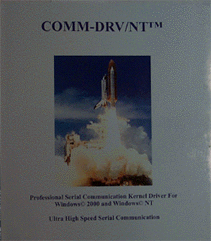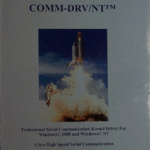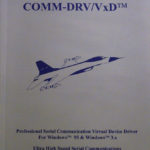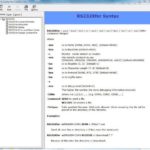Description
Who is a candidate for COMM-DRV/NT? COMM-DRV/NT is perfect for applications where any of the following applies:
COMM-DRV/NT uses the Win32 standard DLL calling conventions. As such, it may be integrated with any Windows tool, application, or language that can call DLLs. COMM-DRV/NT may be used with Visual C/C++, Borland C/C++, Watcom C/C++, Visual Basic, Access, Excel, Paradox, and a myriad of other tools and applications.
COMM-DRV/NT does not use any of the Windows 2003, Windows XP, Windows 2000 or Windows NT serial communication services or device drivers. It interfaces directly to the serial port. As such, there is no unnecessary layering of services that are time consuming. COMM-DRV/NT supports the time stamping of each byte that enters the UART. It provides microsecond resolution. It buffers the time stamp along side its byte data. COMM-DRV/NT was designed with interoperability in mind. Its API is completely downwardly compatible to our COMM-DRV/VxD product. In fact, the new DLL provided with COMM-DRV/NT will work under Windows 2003, Windows XP, Windows 2000, & Windows NT as well as under Windows Me, Windows 98 and Windows 95. Under Windows 2003, Windows XP, Windows 2000, or Windows NT the kernel driver shipped with COMM-DRV/NT is installed. Under Windows Me, Windows 98, or Windows 95 the VxD that ships with COMM-DRV/VxD would be installed. The software engineer/programmer need not worry about Windows platform since the interface is abstracted by the above mentioned DLL. COMM-DRV/NT is extremely easy to use. The API is simple, concise, and intuitive. Ample examples are provided. Additionally COMM-DRV/NT may be integrated with all other WCSC communication products to increase their performance. Technical Specifications:
Application Programming Interface (API):
|




